Growth and survival of Anomalocardia brasiliana larvae (Bivalvia: Veneridae) fed with microalgal diets
DOI: https://doi.org/10.3856/vol44-issue1-fulltext-3
Abstract
Effects of different microalgal diets on the growth and on the survival of Anomalocardia brasiliana larvae between trochophore and pediveliger stages were evaluated. Diets were evaluated in two separate experiments. The first tested the microalgae Isochrisys galbana (Ig), Phaeodactylum tricornutum (Phaeo), Chaetoceros calcitrans (Cca) and the combinations (Ig+Cca), (Ig+Phaeo) and (Cca+Phaeo). The second tested the microalgae C. calcitrans (Cca), Pavlova lutheri (Pl) and the combination (Cca+Pl). When provided alone, I. galbana resulted in survival and growth rates lower than the rest of the diets, and the best results achieved were obtained with P. tricornutum and C. calcitrans supplied alone or combined with other microalgae. However, in the second experiment the diet Cca+Pl resulted in better growth and survival rates (261.67 ± 9.64 μm and 31.50 ± 0.87%) than all diets tested in both experiments, therefore it is recommended for A. brasiliana larvae.


